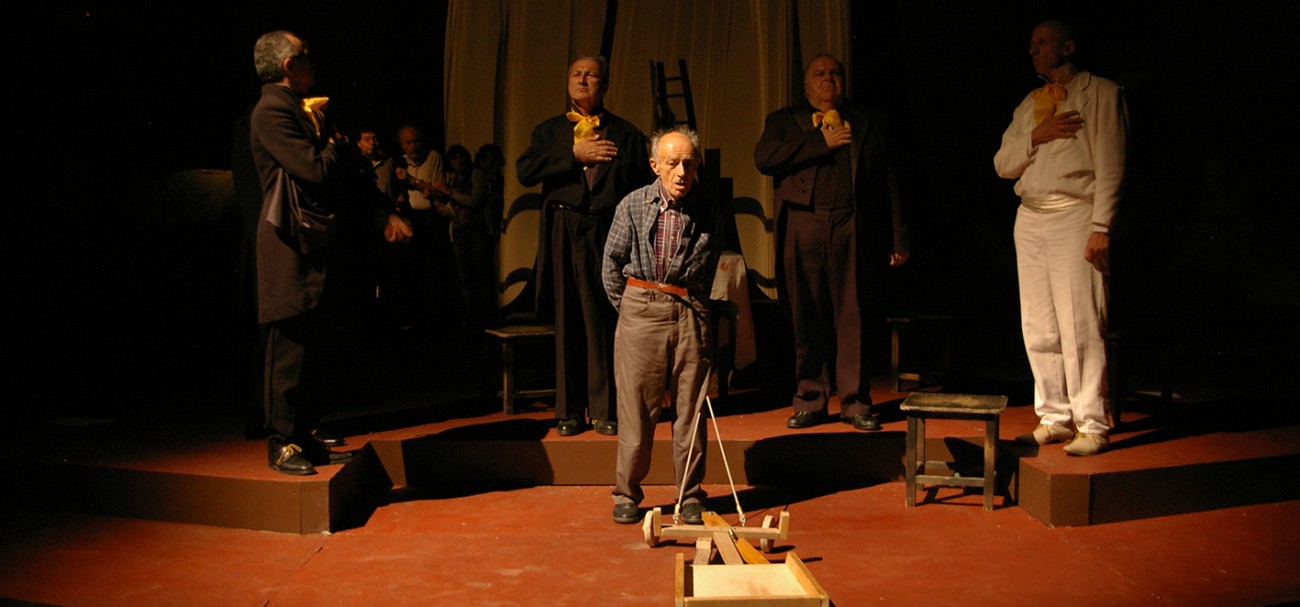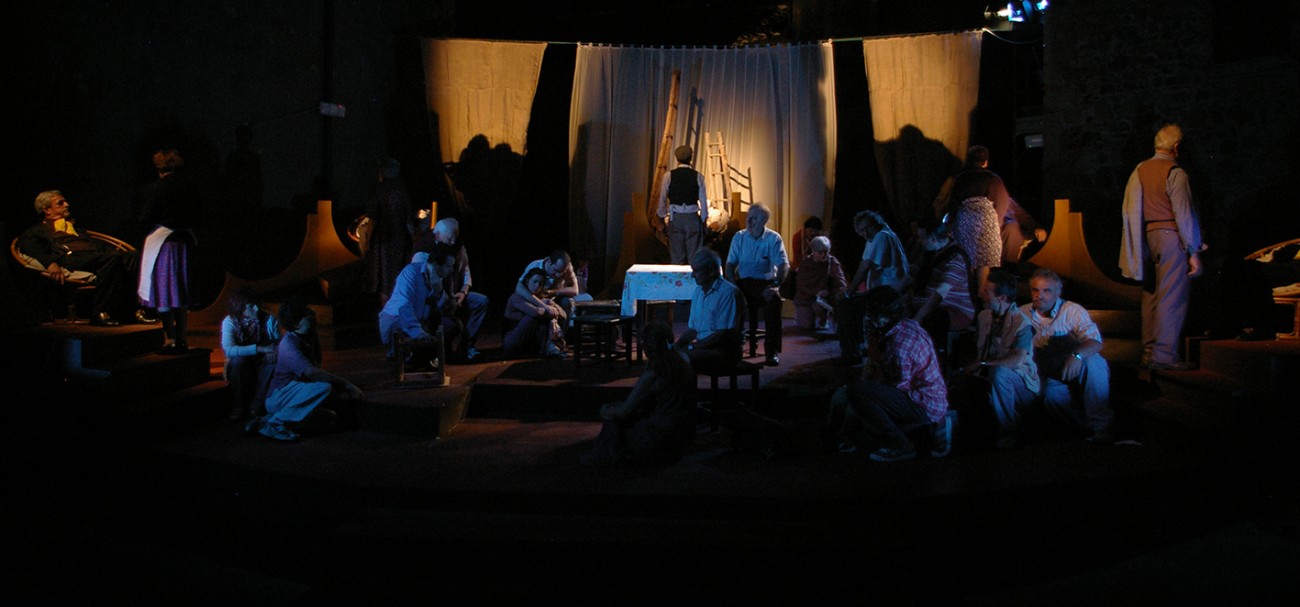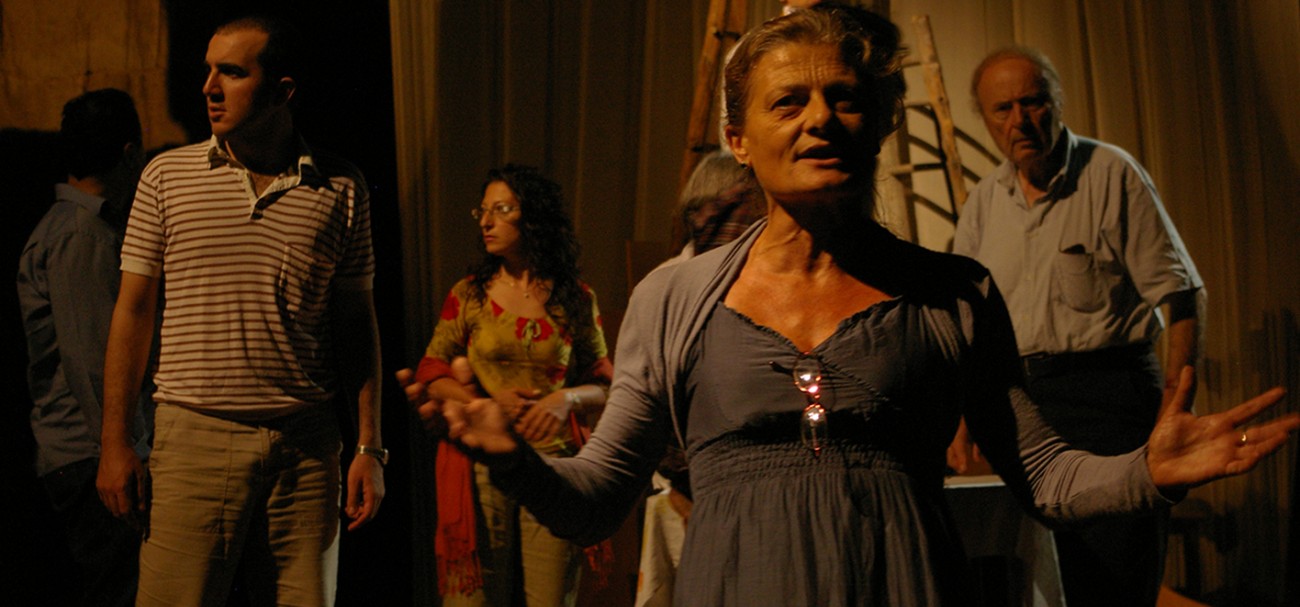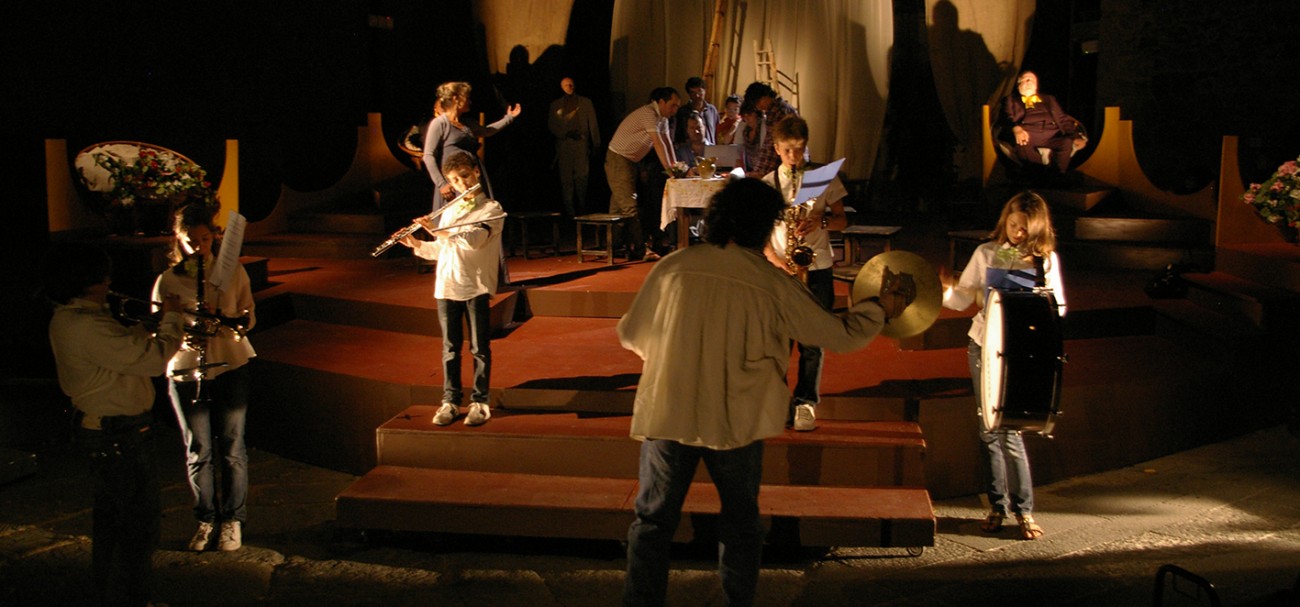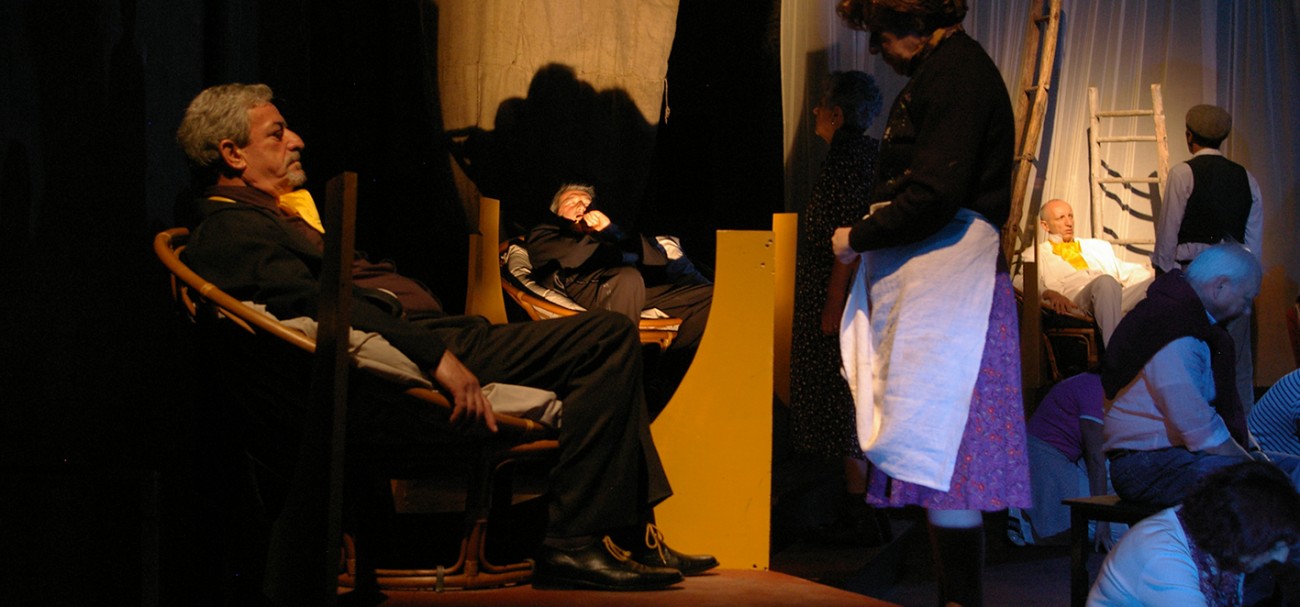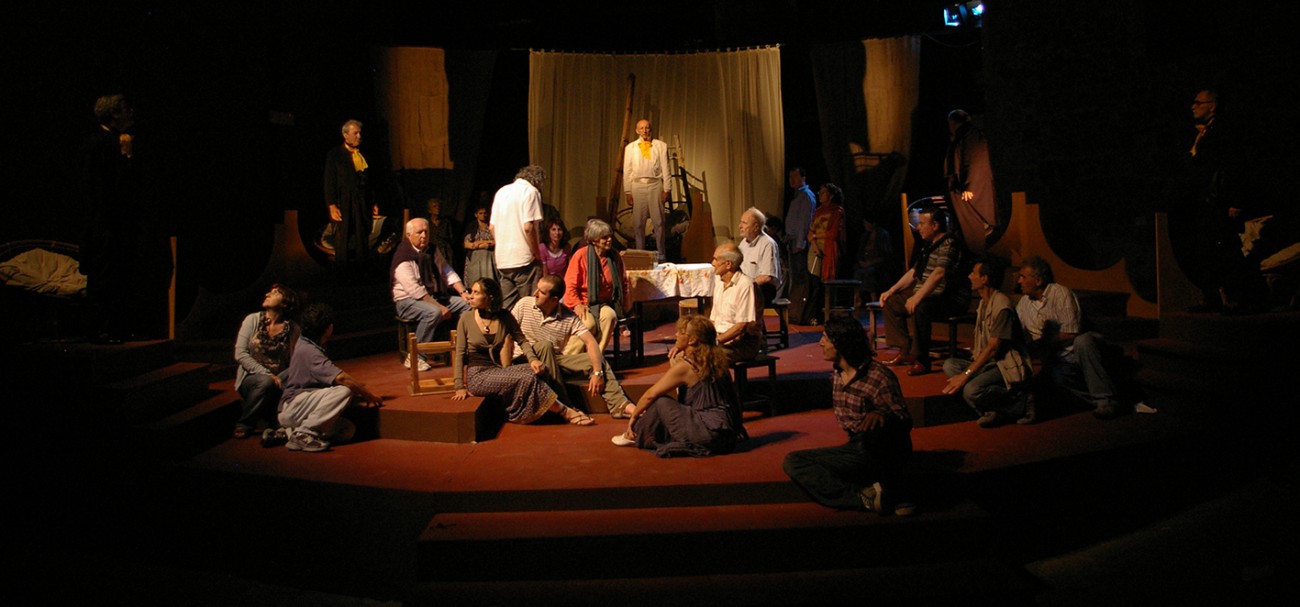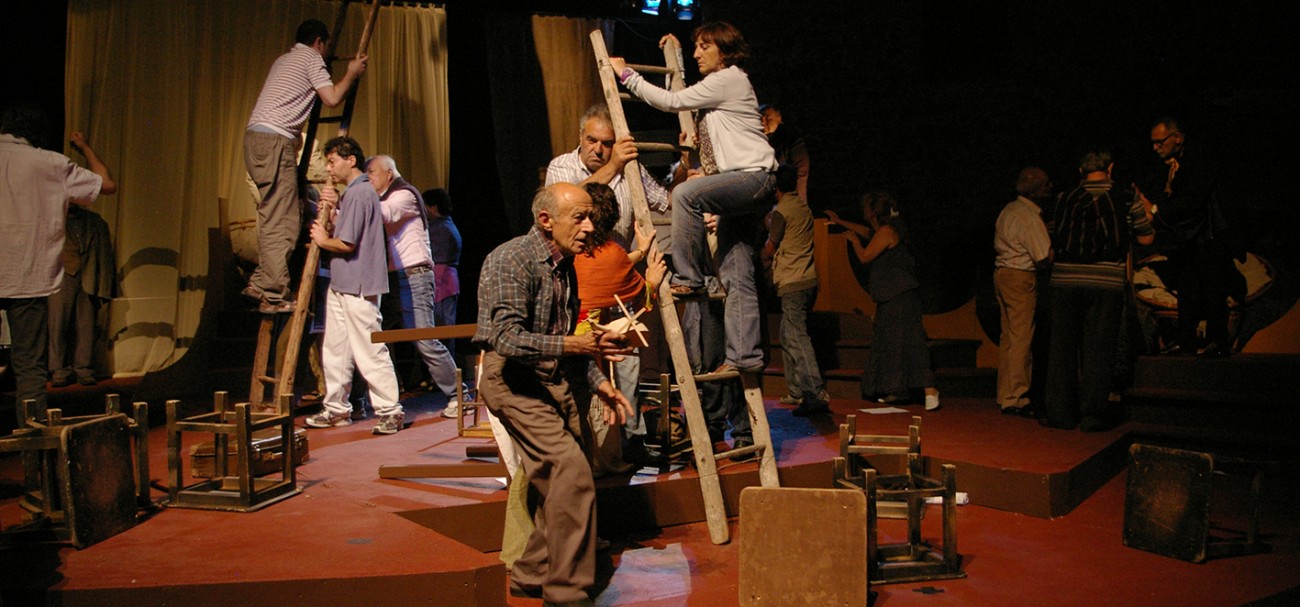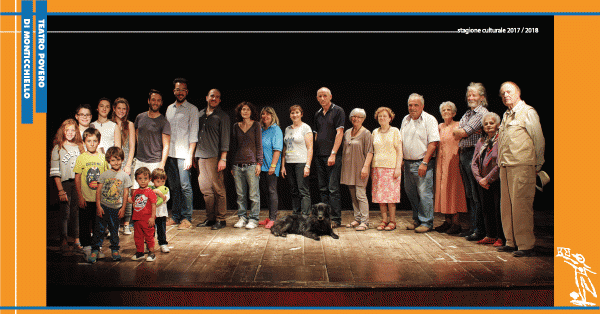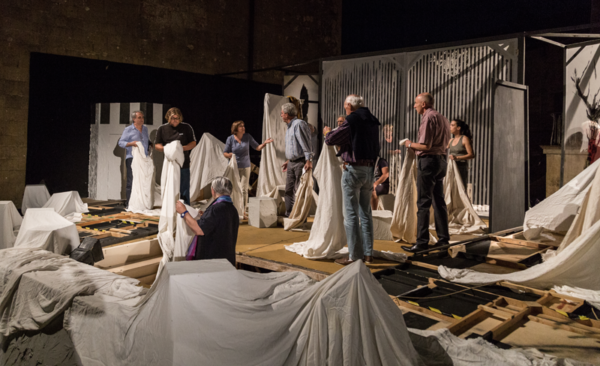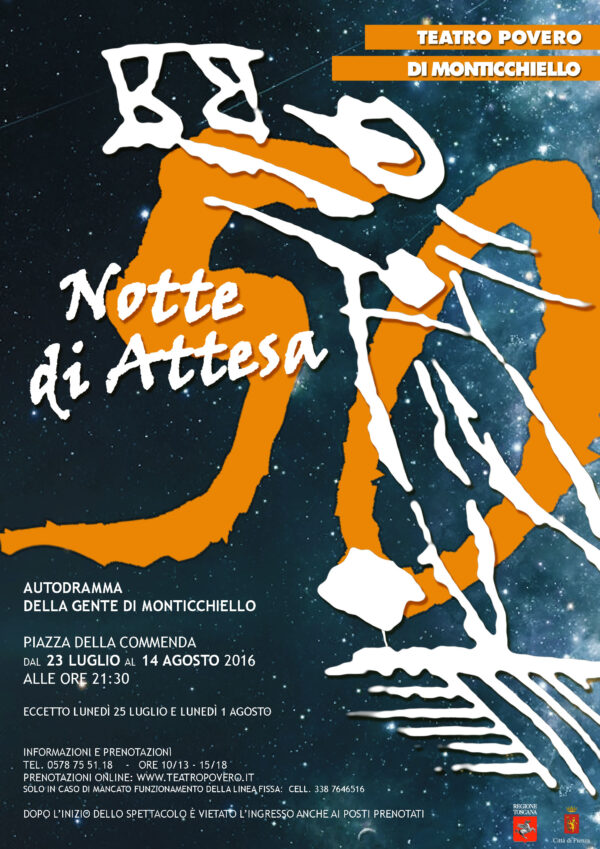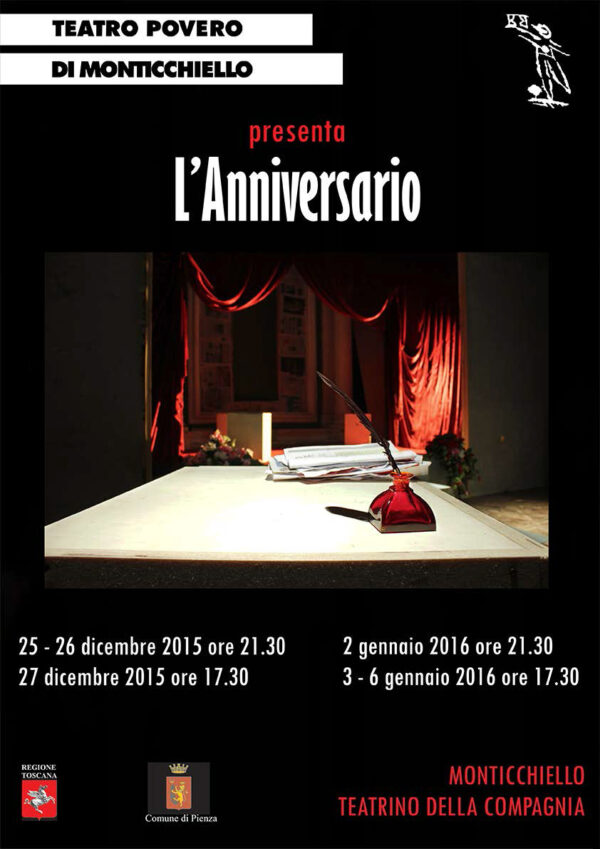Continuing to dramatize the effects of the financial crisis, the 2010 autodramma responded to a statistical fact—that the burden of unemployment and uncertainty fell mainly on people under the age of 35. An increasing number of them were still living with their parents, because they cannot afford to do anything else.
The play showed a group of youngsters who had tried to confront the problem in their own way, by taking over an old farmhouse and living there as a commune. Their relatively realistic story was framed and commented through other dramatic planes which were more obviously theatrical. A mysterious nomadic figure (Il Signor Lui, ‘Mister Him’) haunted their environment: they did not understand whether he represented a threat or a positive resource. Unknown to themselves, they were being watched and interpreted on stage by a Ballad-singer. They were also surveyed by grotesque fantasy figures known as the ‘Crows’ (‘Corvi’), who represented the arbitrary controlling powers of a corrupt and anonymous state, and who indeed seemed able to intervene on the young people’s world by passing arbitrary laws. These figures were inclined to persecute the nomadic migrant ‘il Signor Lui’ in a Kafkaesque or Orwellian fashion.
The young people were developing a mood of resistance and rebellion, and so giving anxiety to their parents, who were more afraid and more in search of a quiet life. But they all also came from a community which retained memories about how, sixty years ago, a peasant community used to face economic oppression with a greater degree of solidarity. Eventually the young generation tried to create a mood of optimism, through a dream narrative which involved climbing ladders to reach up towards a better world—the ‘Precarious Flight’ of the play’s title. And they discovered that ‘il Signor Lui’ was an expert in the construction of toy helicopters.

